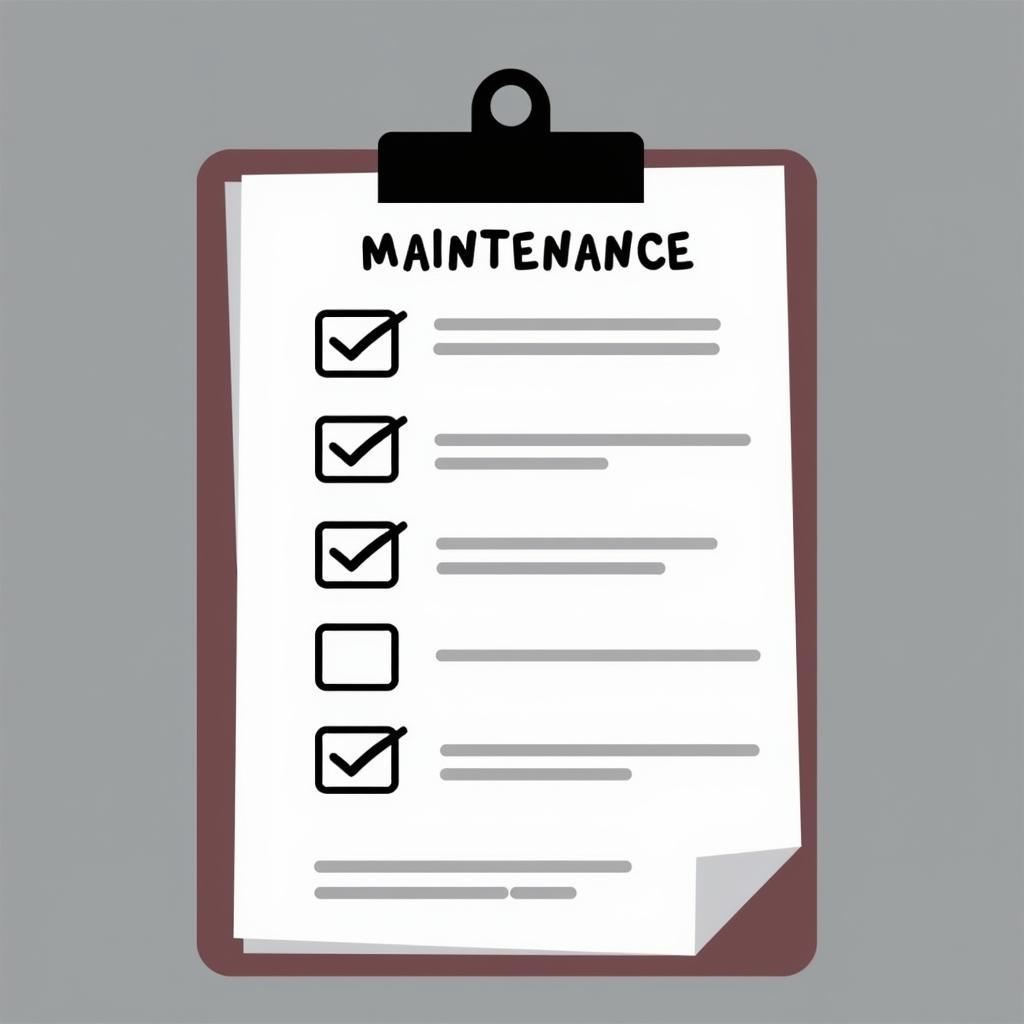Knowing how long car maintenance takes is essential for planning your day, but the answer isn’t always simple. Many factors contribute to the timeframe, from the type of maintenance to the car model and the mechanic’s expertise. This guide delves into those factors, providing a clear understanding of car maintenance timeframes.
Factors Influencing Car Maintenance Time
Several key elements can impact the duration of your car maintenance:
- Type of Maintenance: A simple oil change can be completed within an hour, while more complex procedures like transmission repair or engine rebuilds could take several days.
- Car Make and Model: Certain car models are known for their ease of maintenance due to accessible parts and simpler designs. Others, especially luxury or high-performance vehicles, may require more specialized tools and expertise, potentially extending the maintenance time.
- Mechanic’s Skill and Experience: A seasoned mechanic with years of experience can often diagnose and fix issues faster than a novice technician.
- Parts Availability: If your car requires a specific part, its availability will directly impact the overall maintenance duration. Delays in shipping or sourcing parts can significantly extend the wait time.
Common Car Maintenance Tasks and Estimated Times
To give you a better idea, here’s a general estimate for common car maintenance tasks:
- Oil Change: 30 minutes to 1 hour
- Tire Rotation: 30 minutes to 1 hour
- Brake Pad Replacement: 1 to 3 hours
- Battery Replacement: 30 minutes to 1 hour
- Spark Plug Replacement: 1 to 2 hours
- Coolant Flush: 1 to 2 hours
- Timing Belt Replacement: 2 to 5 hours
- Transmission Fluid Change: 1 to 3 hours
Important Note: These are just estimates. Actual times can vary.
Tips for Efficient Car Maintenance
- Schedule Regular Maintenance: Sticking to your car’s recommended maintenance schedule, often found in your owner’s manual, can prevent minor issues from escalating into major, time-consuming repairs.
- Find a Reliable Mechanic: A trustworthy mechanic will provide accurate estimates and keep you informed about any unexpected delays. Look for a mechanic specializing in German car maintenance near me if you own a German vehicle.
- Inquire About Parts Availability: If your car requires specific parts, confirm their availability with your mechanic beforehand to avoid surprises and delays.
 Car Maintenance Schedule
Car Maintenance Schedule
When To Seek Immediate Car Repair
While regular maintenance is crucial, certain signs indicate an immediate need for car repair:
- Warning Lights on Dashboard: Ignoring warning lights like the “Check Engine” light can lead to more severe damage and costlier repairs down the line.
- Unusual Noises: Strange noises from your engine, brakes, or suspension should never be disregarded.
- Fluid Leaks: Any fluids leaking from your car, such as oil, coolant, or transmission fluid, require immediate attention.
- Steering or Braking Problems: Any issues with steering or braking compromise safety and necessitate immediate professional inspection.
“Early detection is key in car maintenance,” says automotive expert John Miller. “Addressing minor problems promptly can prevent them from escalating into major, time-consuming, and expensive repairs later.”
Planning Your Time Around Car Maintenance
When scheduling car maintenance, factor in potential delays due to unforeseen issues or parts availability. Communicating clearly with your mechanic about your schedule and transportation needs can help minimize inconvenience. Consider services like loaner cars or shuttle services if your chosen mechanic offers them.
FAQs
Q: How often should I get my oil changed?
A: Refer to your owner’s manual for specific recommendations. However, a general rule of thumb is every 3,000 miles or 3 months for conventional oil and every 5,000-7,500 miles or 6 months for synthetic oil.
Q: Can I do car maintenance myself?
A: While some maintenance tasks, like checking fluid levels or changing air filters, are relatively simple, others require specialized tools and knowledge. It’s best to leave complex repairs to trained professionals.
Q: How do I find a reputable mechanic?
A: Seek recommendations from friends, family, or online reviews. Look for certifications like ASE (Automotive Service Excellence) and consider factors like experience, customer service, and transparent pricing.
For those seeking comprehensive car maintenance records, consider using a car maintenance schedule excel template or exploring options for the best maintenance records for cars. If you’re in the UK and looking for a hassle-free option, consider personal car leasing with insurance and maintenance uk.
Conclusion
Understanding “how long does car maintenance take” empowers you to plan your time effectively and avoid unnecessary stress. By following a regular maintenance schedule, choosing a reliable mechanic, and addressing issues promptly, you can ensure your car runs smoothly for years to come.
Need help finding a trustworthy mechanic or advice on car maintenance? Contact AutoTipPro at +1 (641) 206-8880. Our team of experts is here to assist you. We’re located at 500 N St Mary’s St, San Antonio, TX 78205, United States.




Leave a Reply